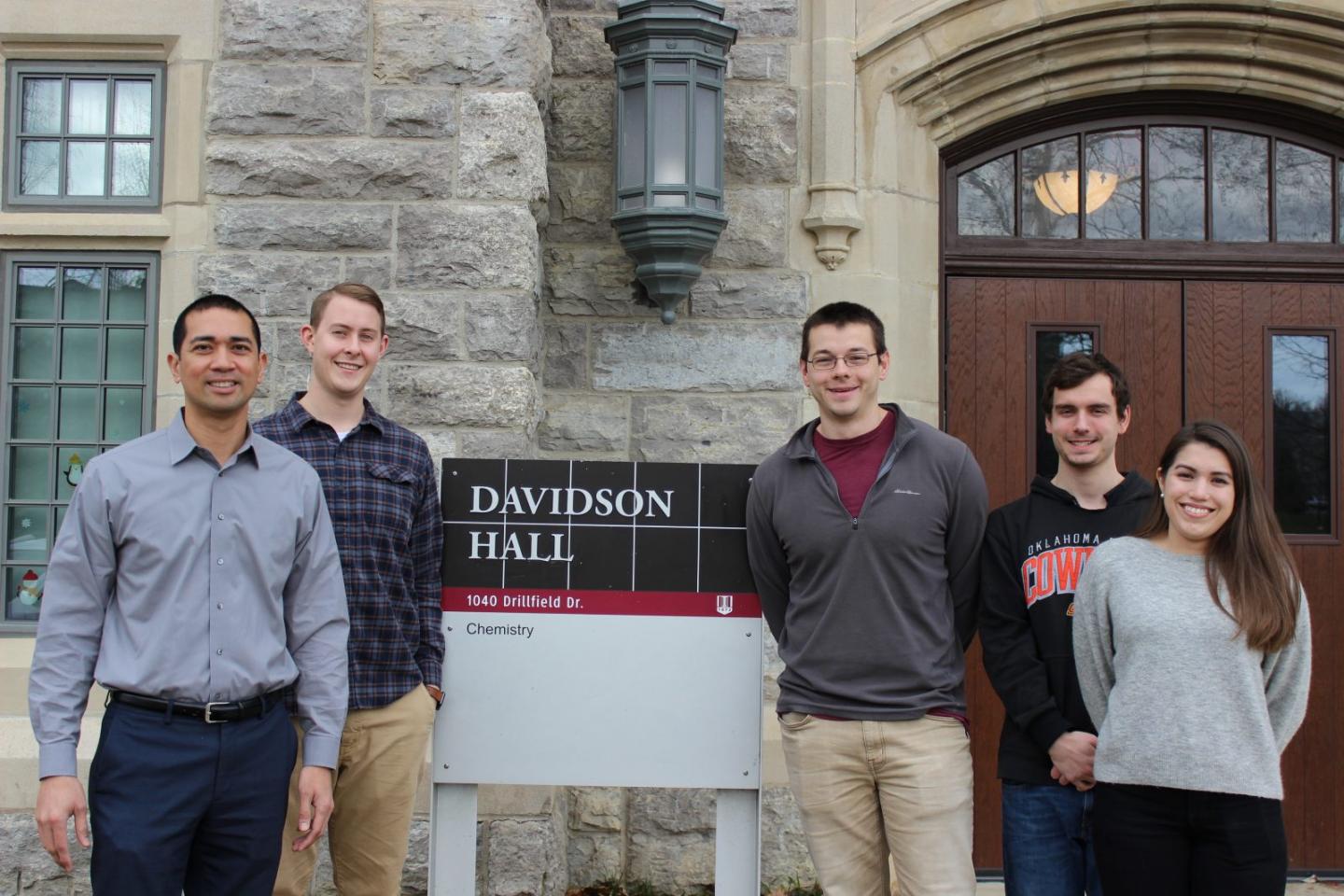
Credit: Virginia Tech
Webster Santos, professor of chemistry and the Cliff and Agnes Lilly Faculty Fellow in the College of Science at Virginia Tech, has received a $2.8 million award from the National Institute of Allergy and Infectious Diseases (NIAID) to discover drugs to inhibit a small molecule transporter.
Blocking this transporter modulates the immune system and has implications both in treating autoimmune diseases, such as multiple sclerosis, and in immune-oncology.
Santos received this research grant in collaboration with Kevin Lynch, a professor of pharmacology at the University of Virginia. Lynch will oversee the biological testing of the drug. The NIAID award builds on an existing research grant from the National Institute of General Medical Sciences, which was awarded to Santos and Lynch in September 2016 to discover inhibitors of the enzymes that synthesize a molecule called S1P.
“My laboratory is discovering inhibitors that might become a new generation of drugs against multiple sclerosis and metastatic cancers,” Santos said. “The inhibitors alter the way immune cells travel throughout the body by changing the extracellular levels of S1P. We have discovered lead inhibitors and we are optimizing these compounds so as to achieve maximum therapeutic benefit.”
Santos is a member of the Virginia Tech Center for Drug Discovery and an affiliate of the Fralin Life Science Institute. He is an expert medicinal chemist whose research focuses on compounds with new modes of action to treat multiple sclerosis, kidney fibrosis, neurodegenerative diseases, aging, and fatty liver disease.
Multiple sclerosis (MS) is a potentially disabling disease of the central nervous system, which comprises the brain and spinal cord. In MS, the immune system attacks the myelin sheath, the protective cover of nerve fibers, causing communication problems between the brain and the rest of the body. Eventually, the disease results in the nerves deteriorating or becoming permanently damaged, which can impair brain function, coordination, sensation, and motor ability. According to the National Multiple Sclerosis Society, MS affects 2.3 million people worldwide and there is currently no cure. Treatments, however, can help speed up recovery after attacks, modify the course of the disease, and manage symptoms.
In MS, the body’s immune system attacks the myelin sheath of motor neurons in the central nervous system leading to progressive disability. Santos’ drug inhibits SPNS2, a transporter protein in the membrane of endothelial cells, which line lymph vessels. Lymph S1P (sphingosine 1-phosphate), which is secreted from endothelial cells via SPNS2, is necessary for proper positioning of immune cells. By inhibiting SPNS2, Santos’s drug will modulate the immune system and might ultimately be used to treat MS.
“Insofar as we are aware, we are the only group with SPNS2 inhibitors,” Santos said.
The collaboration between Virginia Tech and the University of Virginia is crucial to the research. Santos works on refining the inhibitor and developing the compound into a drug, while Lynch does the biological and animal studies. Santos and Lynch have filed an application to the U.S. Patent and Trademark Office for the drugs and are working with other collaborators who are testing SPNS2 inhibitors in mouse models of MS and metastatic cancer. When SPNS2 inhibitors show efficacy in these models, the next phase would be to demonstrate safety for eventual testing in humans.
“Drug discovery and development is a long, expensive, and uncertain path,” said Kevin Lynch. “The SPNS2 inhibitors that we have will allow validation of this transporter as a bona fide drug target. Both of our groups are working hard to take our studies from the bench to the clinic efficiently and quickly. The synergy between medicinal chemistry and pharmacology is really what makes it work.”
Based on their research and to realize benefit by patients, Santos and Lynch co-founded a start-up company, Flux Therapeutics. The goal of the company is to commercialize the findings from their laboratories.
###
Media Contact
Kristin Rose
[email protected]
Original Source
https:/




